Maya Angelou
Maya Angelou was a multitalented poet and author known for her acclaimed 1969 memoir, I Know Why the Caged Bird Sings .
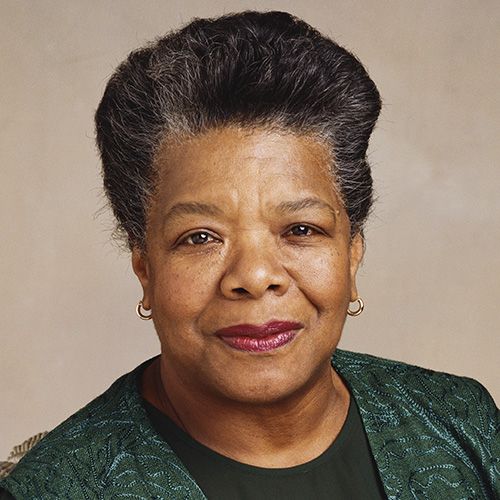
We may earn commission from links on this page, but we only recommend products we back.

Who Was Maya Angelou?
Quick facts, life as an performer and activist, movie career, son and husbands, legacy: maya angelou quarter and more.
A multitalented writer and performer, Maya Angelou is best known for her work as an author and poet . Her 1969 memoir, I Know Why the Caged Bird Sings , made literary history as the first nonfiction bestseller by a Black woman. Some of her famous poems include “Phenomenal Woman,” “Still I Rise,” and “On the Pulse of Morning,” which she recited at President Bill Clinton ’s inauguration in 1993 and which earned her a Grammy Award. Angelou also enjoyed a career as a Tony- and Emmy-nominated actor and singer in plays, musicals, and onscreen. She became the first Black woman to have a screenplay produced with the 1972 movie Georgia, Georgia . In her work as a civil rights activist , she collaborated with Martin Luther King Jr. and Malcolm X , among others. The Presidential Medal of Freedom recipient died in May 2014 at age 86.
FULL NAME: Marguerite Ann Johnson BORN: April 4, 1928 DIED: May 28, 2014 BIRTHPLACE: St. Louis, Missouri SPOUSES: Tosh Angelos (c. 1949-1952), Vusumzi Make (c. 1961), and Paul Du Feu (c. 1973-1981) CHILD: Guy Johnson ASTROLOGICAL SIGN: Aries
Maya Angelou was born Marguerite Ann Johnson on April 4, 1928, in St. Louis.
She had a difficult childhood. Her parents split up when she was very young, and she and her older brother, Bailey, were sent to live with their paternal grandmother, Anne Henderson, in Stamps, Arkansas. Bailey gave Marguerite the nickname “Maya,” which she would adopt as her preferred name later in life.
As an African American, Angelou experienced firsthand racial prejudices and discrimination in Arkansas. She also suffered violence at home when she was around the age of 7. During a visit with her mother, Maya was raped by her mother’s boyfriend. As vengeance for the sexual assault, her uncles killed the boyfriend.
Young Maya was so traumatized by the experience that she stopped talking. She returned to Arkansas and spent about five years as a virtual mute.
A short-lived high school relationship resulted in Maya becoming pregnant. She was 16 years old whens he delivered her son, Guy Johnson, in 1944. After giving birth, she worked a number of jobs to support herself and her child.
Around this time, Maya moved to San Francisco and won a scholarship to study dance and acting at the California Labor School. She also became the first Black female cable car conductor, a job she held only briefly, in San Francisco.
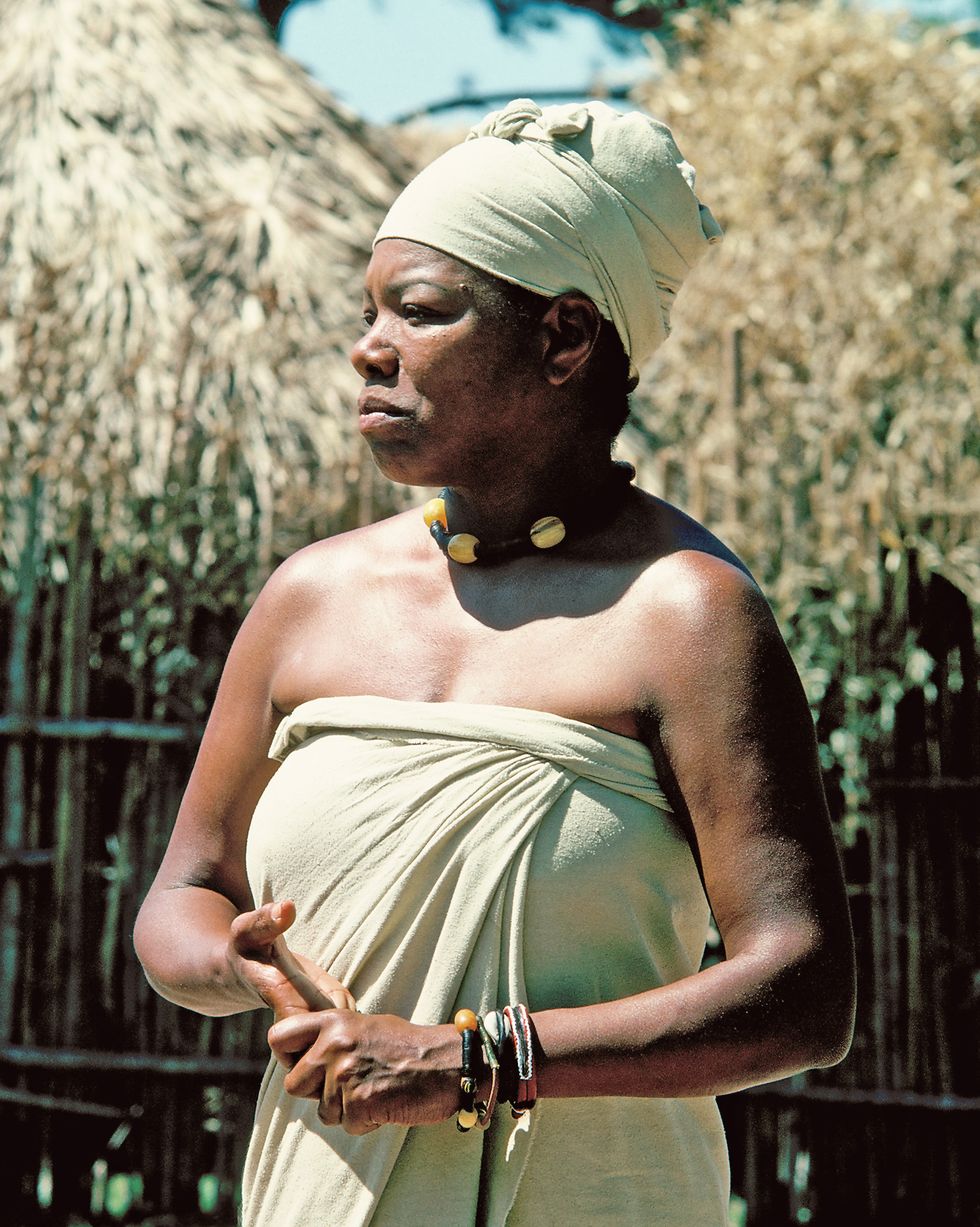
In the mid-1950s, the world began to know Maya Angelou, her professional name adapted from her first husband’s last name, when her career as an actor and singer took off. She landed a role in a touring production of Porgy and Bess , later appearing in the off-Broadway production Calypso Heat Wave (1957) and releasing her first album, Miss Calypso (1957).
A member of the Harlem Writers Guild and a civil rights activist , Angelou organized and starred in the musical revue Cabaret for Freedom as a benefit for the Southern Christian Leadership Conference, which Martin Luther King Jr. helped found before becoming its first president. Angelou also served as the SCLC’s northern coordinator and became a close to King.
In 1961, Angelou appeared in an off-Broadway production of Jean Genet’s The Blacks with James Earl Jones , Lou Gossett Jr., and Cicely Tyson . Afterward, the performer retreated from the theater scene for much of the 1960s. She lived abroad, first in Egypt and then in Ghana, and worked as an editor and a freelance writer. Angelou also held a position at the University of Ghana for a time.
In Ghana, she also joined a community of “Revolutionist Returnees” exploring pan-Africanism and became close with activist and Black nationalist leader Malcolm X . In 1964, upon returning to the United States, Angelou helped Malcolm X set up the Organization of Afro-American Unity, which disbanded after his assassination the following year.
Back in the United States, Angelou earned a Tony Award nomination for her role in the play Look Away (1973) and an Emmy Award nomination for her work on the television miniseries Roots (1977), among other honors.
Just Give Me a Cool Drink of Water ’fore I Diiie
Angelou published several collections of poetry, but her most famous was 1971’s collection Just Give Me a Cool Drink of Water ’fore I Diiie , which was nominated for the Pulitzer Prize.
Other famous collections of Angelou’s poetry include:
- Oh Pray My Wings Are Gonna Fit Me Well (1975), which includes Angelou’s poem “Alone,”
- And Still I Rise (1978), which features the beloved poem “Phenomenal Woman,”
- Shaker, Why Don’t You Sing? (1983),
- I Shall Not Be Moved (1990), featuring the poem “Human Family,” and
- Even the Stars Look Lonesome (1997).
Apple famously used a video of Angelou reading her poem “Human Family” in an advertisement at the 2016 Olympics.
“On the Pulse of Morning”
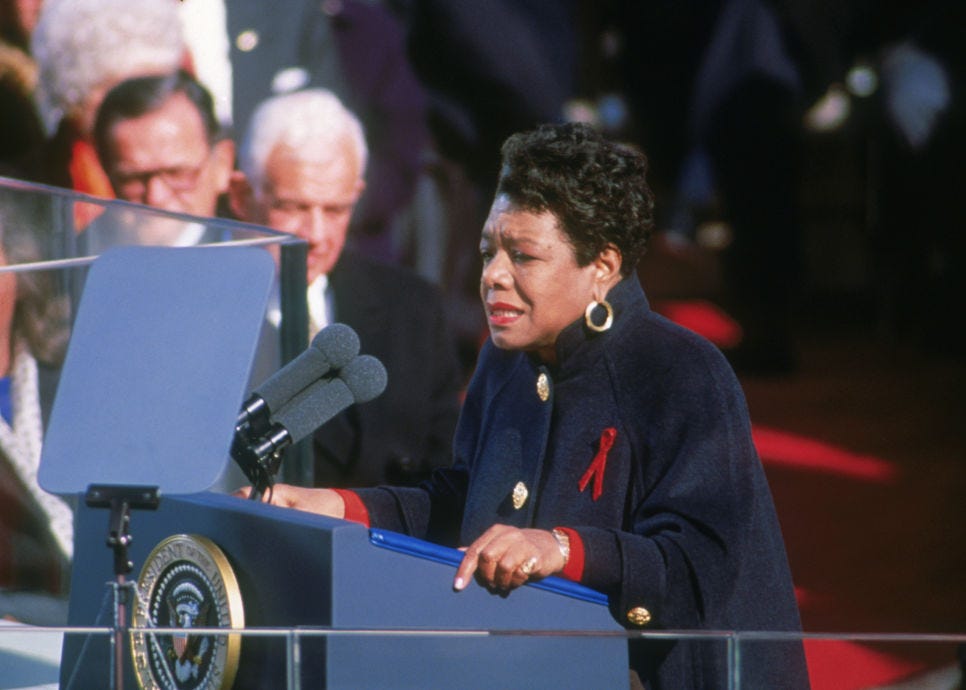
One of her most famous works, Angelou wrote the poem “On the Pulse of Morning” for President Bill Clinton ’s inaugural ceremony in January 1993. Her recitation at the ceremony marked the first inaugural poem reading since 1961, when Robert Frost delivered “The Gift Outright” at John F. Kennedy ’s inauguration. Angelou went on to win a Grammy Award for Best Spoken Word Album for the audio version of “On the Pulse of Morning.”
Other well-known poems by Angelou include “His Day Is Done,” a 1962 tribute poem Angelou wrote for Nelson Mandela as he made his secret journey from Africa to London, and “Amazing Peace,” which she wrote in 2005 for the White House tree-lighting ceremony.
In addition to her books of poetry, Angelou also wrote several memoirs and even cookbooks. She won two NAACP Image Awards in the Outstanding Literary Work (Nonfiction) category for her 2005 cookbook and 2008’s Letter to My Daughter .
I Know Why the Caged Bird Sings
Angelou’s friend and fellow writer James Baldwin urged her to write about her life experiences. The resulting work was the enormously successful 1969 memoir about her childhood and young adult years, I Know Why the Caged Bird Sings .
The poignant story made literary history as the first nonfiction bestseller by a Black woman. The book, which made Angelou an international star, continues to be regarded as her most popular autobiographical work.
In 1995, Angelou was lauded for remaining on The New York Times ’ paperback nonfiction bestseller list for two years, the longest-running record in the chart’s history at the time.
Gather Together in My Name
Angelou’s follow-up to I Know Why the Caged Bird Sings , this 1974 memoir covers her life as an unemployed teenage mother in California, when she turned to narcotics and prostitution.
Singin’ and Swingin’ and Gettin’ Merry Like Christmas
Angelou wrote this autobiography, published in 1976, about her early career as a singer and actor.
The Heart of a Woman
Angelou crafted this 1981 memoir about leaving California with her son for New York, where she took part in the Civil Rights Movement .
All God’s Children Need Traveling Shoes
A lyrical exploration about what it means to be an African American in Africa, this autobiographical book was published in 1986 and covers the years Angelou spent living in Ghana.
Wouldn’t Take Nothing for My Journey Now
This inspirational essay collection from 1994 features Angelou’s insights about spirituality and living well.
A Song Flung Up to Heaven
Another autobiographical work, A Song Flung Up to Heaven (2002) explores Angelou’s return from Africa to the United States and her ensuing struggle to cope with the devastating assassinations of two human rights leaders with whom she worked: Malcolm X and Martin Luther King Jr .
King was killed on Angelou’s 40 th birthday, leading the author to stop celebrating her birthday for years afterward. She also sent flowers to King’s widow, Coretta Scott King , for more than 30 years, until Coretta’s death in 2006.
A Song Flung Up to Heaven ends as Angelou begins work on I Know Why the Caged Bird Sings.
Letter to My Daughter
Dedicated to a daughter Angelou never had, this 2008 book of essays features Angelou’s advice for young women about living a life of meaning.
Mom & Me & Mom
In this 2013 memoir, Angelou discusses her complicated relationship with her mother who abandoned her during childhood.
Interested in health, Angelou’s published cookbooks include Hallelujah! The Welcome Table: A Lifetime of Memories With Recipes (2005) and Great Food, All Day Long (2010).
After publishing I Know Why the Caged Bird Sings , Angelou broke new ground artistically, educationally, and socially by writing the movie Georgia, Georgia (1972). The drama made her the first African American woman to have a screenplay produced.
In 1998, seeking new creative challenges, Angelou made her directorial debut with Down in the Delta , starring Alfre Woodard. Her work on the film was recognized with the Chicago International Film Festival’s 1998 Audience Choice Award and a nod from the Acapulco Black Film Festival in 1999.
Beginning in 1982, Angelou also returned to teaching at Wake Forest University in North Carolina. Over the years, she led a number of humanities courses, including “Race, Politics and Literature,” “African Culture and Impact on U.S.,” and “Race in the Southern Experience.” In 2011, Barack Obama awarded her the Presidential Medal of Freedom.
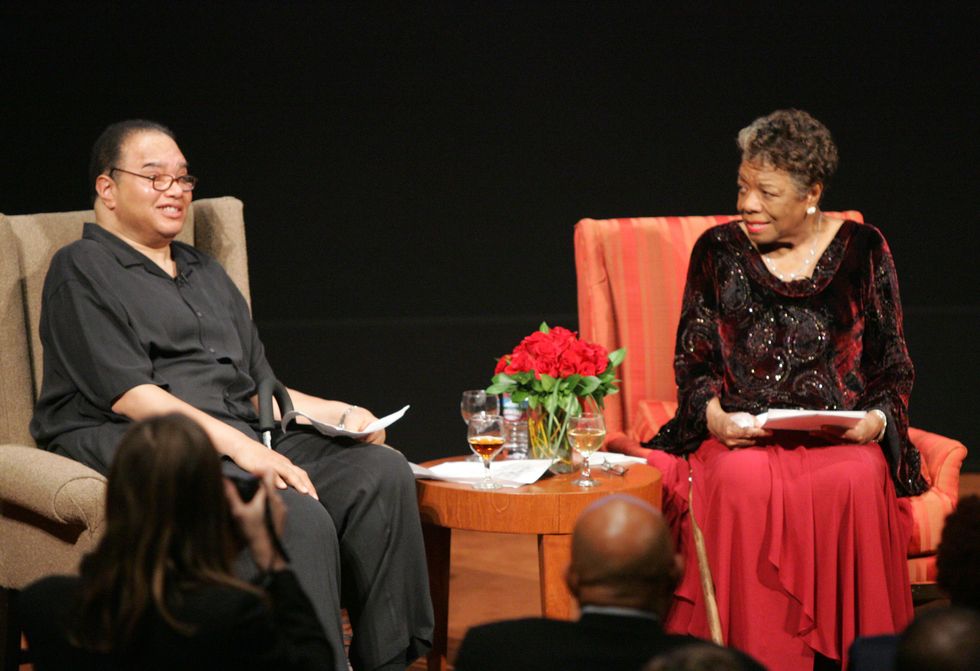
In 1944, Angelou gave birth to her son, Clyde Johnson, when she was 16 years old. Johnson followed in his mother’s footsteps to eventually become a poet known as Guy Johnson. He died in February 2022.
Angelou was often tight-lipped about her personal life, and details of her marriages and relationships have been inconsistent—even based on her own accounts. She is believed to have been married at least three times.
According to the National Women’s History Museum , Angelou wed Tosh Angelos, an electrician in the U.S. Navy, in 1949. She adopted a version of his surname and kept it through the rest of her life, despite the couple’s divorce in 1952.
In late 1960, Angelou met Vusumzi Make, a South African freedom fighter. The couple married in 1961, according to Stanford University’s Martin Luther King, Jr. Research and Education Institute . They moved to Cairo with her son in 1962, but the marriage dissolved soon after.
Then in 1973, Angelou married carpenter Paul du Feu and lived with him in Berkeley, California, until their divorce in 1981.
After experiencing health issues for a number of years, Angelou died on May 28, 2014, at her home in Winston-Salem, North Carolina. She was 86 years old. A specific cause of death wasn’t given, but Angelou’s literary agent, Helen Brann, said that she had been “frail” and suffering from heart problems.
The news of her passing spread quickly with many people taking to social media to mourn and remember Angelou. Singer Mary J. Blige and politician Cory Booker were among those who tweeted their favorite quotes by her in tribute.
Then-President Barack Obama also issued a statement about Angelou, calling her “a brilliant writer, a fierce friend, and a truly phenomenal woman.” Angelou “had the ability to remind us that we are all God’s children; that we all have something to offer,” he wrote.
A memorial service for Angelou was held on June 7, 2014, at Wake Forest University, where she taught for about three decades. Among the attendees were her close friend Oprah Winfrey , former President Bill Clinton , then-First Lady Michelle Obama , and actor Cicely Tyson . BeBe Winans and Lee Ann Womack gave musical performances.
In November 2020, the San Francisco Arts Commission unanimously approved the recommendation for a sculpture honoring Angelou “in recognition of her many accomplishments, including breaking the color and gender barriers by becoming San Francisco’s first African-American female streetcar conductor, an award-winning author and poet, a Presidential Medal of Freedom recipient and a civil rights leader.”
The monument is in development by artist Lava Thomas and scheduled to be installed in fall 2024 outside the main branch of the San Francisco Library. The design is a book featuring Angelou’s likeness on one side and the title of her famous poem “Still I Rise” at the base.
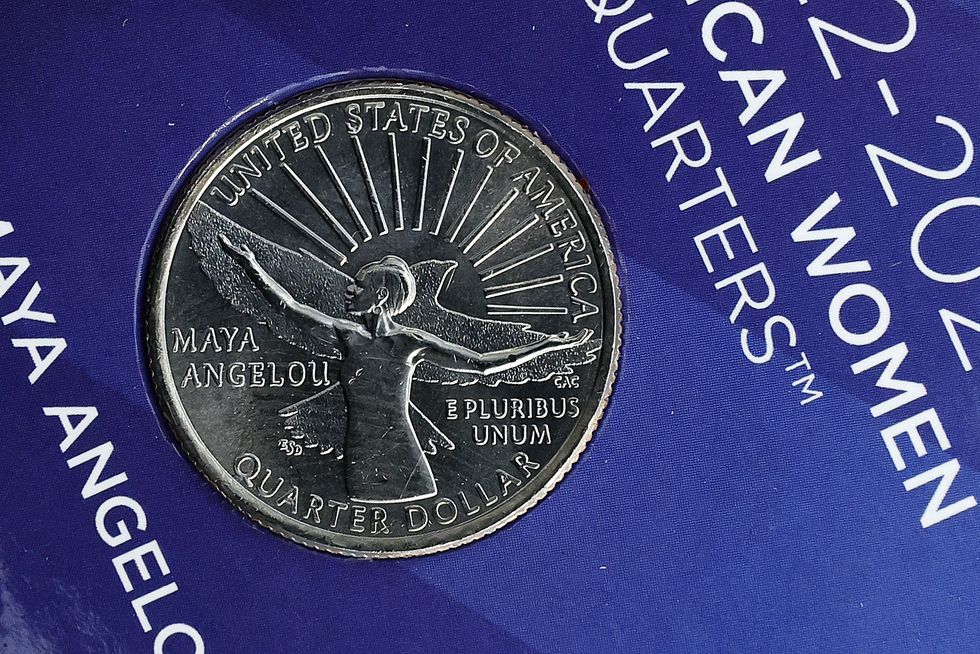
Meanwhile, Angelou has become one of the historical figures featured on U.S. money . It was announced in May 2021 that she would be one of the first women commemorated with a new series of quarters from the U.S. Mint. The first shipments of the coin were made in January 2022.
The obverse, or heads, side of the coin depicts former President George Washington , with the reverse side showing Angelou with her arms uplifted. The bird in flight and rising sun behind her likeness are images inspired by her poetry and symbolic of the way she lived, according to the U.S. Mint .
The American Women Quarters Program has honored nine other women from 2022 through 2023, including astronaut Sally Ride , former Cherokee Nation chief Wilma Mankiller , former First Lady Eleanor Roosevelt , and aviator Bessie Coleman . It is scheduled to continue through 2025.
- Courage is the most important of all virtues, because without courage, you cannot practice any of the other virtues consistently.
- I have found that among its other benefits, giving liberates the soul of the giver.
- The caged bird sings with a fearful trill / of things unknown but longed for still / and his tune is heard on the distant hill / for the caged birds sings of freedom.
- If you don’t like something, change it. If you can’t change it, change your attitude.
- We may encounter many defeats, but we must not be defeated.
- I’ve learned that people will forget what you said, people will forget what you did, but people will never forget how you made them feel.
- Words mean more than what is set down on paper. It takes the human voice to infuse them with deeper meaning.
- How important it is for us to recognize and celebrate our heroes and she-roes!
- To grow up is to stop putting blame on parents.
- We are only as blind as we want to be.
- The intensity with which young people live demands that they “black out” as often as possible.
- Home is a refuge, not only from my worries, my terrible concerns. I like beautiful things around me. I like to be beautiful because it delights my eyes and my soul is lifted up.
- You may not control the events that happen to you, but you can decide not to be reduced by them.
- When people show you who they are, believe them the first time.
- Let gratitude be the pillow upon which you kneel to say your nightly prayer. And let faith be the bridge you build to overcome evil and welcome good.
- If you get, give. If you learn, teach.
- In the flush of love’s light, we dare to be brave, and suddenly we see that love costs all we are and will ever be. Yet, it is only love which sets us free.
- I believe that each of us comes from the creator trailing wisps of glory.
Fact Check: We strive for accuracy and fairness. If you see something that doesn’t look right, contact us !
The Biography.com staff is a team of people-obsessed and news-hungry editors with decades of collective experience. We have worked as daily newspaper reporters, major national magazine editors, and as editors-in-chief of regional media publications. Among our ranks are book authors and award-winning journalists. Our staff also works with freelance writers, researchers, and other contributors to produce the smart, compelling profiles and articles you see on our site. To meet the team, visit our About Us page: https://www.biography.com/about/a43602329/about-us
Tyler Piccotti joined the Biography.com staff as an Associate News Editor and is now the News and Culture Editor. He previously worked as a reporter and copy editor for a daily newspaper recognized by the Associated Press Sports Editors. In his current role, he shares the true stories behind your favorite movies and TV shows and profiles rising musicians, actors, and athletes. When he's not working, you can find him at the nearest amusement park or movie theater and cheering on his favorite teams.

Women’s History

Kamala Harris

A List of All 21 EGOT Winners

Mariah Carey

Suni Lee’s Lip Combo Includes These 3 Products

Simone Biles
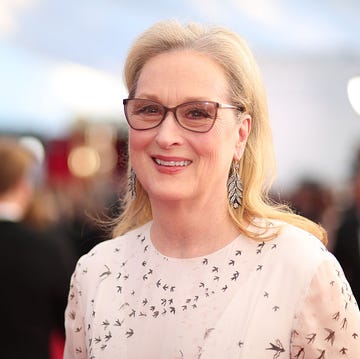
A Meryl Streep Quiz for Her Biggest Fans

What Is Vice President Kamala Harris’ Religion?

Marsha P. Johnson

Deb Haaland
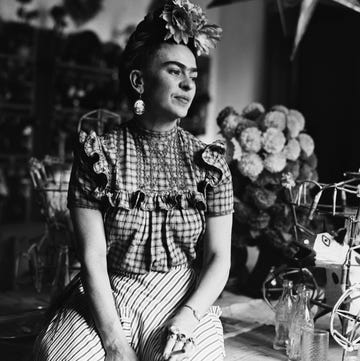
14 Hispanic Women Who Have Made History

5 Crowning Achievements of Maya Angelou

Maya Angelou
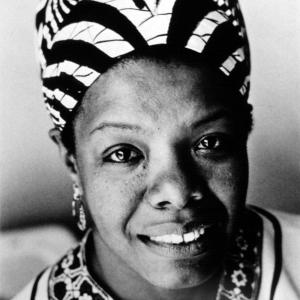
Poet, dancer, singer, activist, and scholar Maya Angelou was a world-famous author. She was best known for her unique and pioneering autobiographical writing style.
On April 4, 1928, Marguerite Ann Johnson, known to the world as Maya Angelou, was born in St. Louis, Missouri. Due to her parents’ tumultuous marriage and subsequent divorce, Angelou went to live with her paternal grandmother in Stamps, Arkansas at an early age. Her older brother, Bailey, gave Angelou her nickname “Maya.”
Returning to her mother’s care briefly at the age of seven, Angelou was raped by her mother’s boyfriend. He was later jailed and then killed when released from jail. Believing that her confession of the trauma had a hand in the man’s death, Angelou became mute for six years. During her mutism and into her teens, she again lived with her grandmother in Arkansas.
Angelou’s interest in the written word and the English language was evident from an early age. Throughout her childhood, she wrote essays, poetry, and kept a journal. When she returned to Arkansas, she took an interest in poetry and memorized works by Shakespeare and Poe.
Prior to the start of World War II, Angelou moved back in with her mother, who at this time was living in Oakland, California. She attended George Washington High School and took dance and drama courses at the California Labor School.
When war broke out, Angelou applied to join the Women’s Army Corps. However, her application was rejected because of her involvement in the California Labor School, which was said to have Communist ties. Determined to gain employment, despite being only 15 years old, she decided to apply for the position of a streetcar conductor. Many men had left their jobs to join the services, enabling women to fill them. However, Angelou was barred from applying at first because of her race. But she was undeterred. Every day for three weeks, she requested a job application, but was denied. Finally, the company relented and handed her an application. Because she was under the legal working age, she wrote that she was 19. She was accepted for the position and became the first African American woman to work as a streetcar conductor in San Francisco. Angelou was employed for a semester but then decided to return to school. She graduated from Mission High School in the summer of 1944 and soon after gave birth to her only child, Clyde Bailey (Guy) Johnson.
After graduation, Angelou undertook a series of odd jobs to support herself and her son. In 1949, she married Tosh Angelos, an electrician in the US Navy. She adopted a form of his surname and kept it throughout her life, though the marriage ended in divorce in 1952.
Angelou was also noted for her talents as a singer and dancer, particularly in the calypso and cabaret styles. In the 1950s, she performed professionally in the US, Europe, and northern Africa, and sold albums of her recordings.
In 1950, African American writers in New York City formed the Harlem Writers Guild to nurture and support the publication of Black authors. Angelou joined the Guild in 1959. She also became active in the Civil Rights Movement and served as the northern coordinator of the Southern Christian Leadership Conference, a prominent African American advocacy organization
In 1969, Angelou published I Know Why the Caged Bird Sings , an autobiography of her early life. Her tale of personal strength amid childhood trauma and racism resonated with readers and was nominated for the National Book Award. Many schools sought to ban the book for its frank depiction of sexual abuse, but it is credited with helping other abuse survivors tell their stories. I Know Why the Caged Bird Sings has been translated into numerous languages and has sold over a million copies worldwide. Angelou eventually published six more autobiographies, culminating in 2013’s Mom & Me & Mom.
She wrote numerous poetry volumes, such as the Pulitzer Prize-nominated Just Give me a Drink of Water 'fore I Diiie (1971), as well as several essay collections. She also recorded spoken albums of her poetry, including “On the Pulse of the Morning,” for which she won a Grammy for Best Spoken Word Album. The poem was originally written for and delivered at President Bill Clinton’s inauguration in 1993. She also won a Grammy in 1995, and again in 2002, for her spoken albums of poetry.
Angelou carried out a wide variety of activities on stage and screen as a writer, actor, director, and producer. In 1972, she became the first African American woman to have her screen play turned into a film with the production of Georgia, Georgia . Angelou earned a Tony nomination in 1973 for her supporting role in Jerome Kitty’s play Look Away , and portrayed Kunta Kinte’s grandmother in the television miniseries Roots in 1977.
She was recognized by many organizations both nationally and internationally for her contributions to literature. In 1981, Wake Forest University offered Angelou the Reynolds Professorship of American Studies. President Clinton awarded Angelou the National Medal of Arts in 2000. In 2012, she was a member of the inaugural class inducted into the Wake Forest University Writers Hall of Fame. The following year, she received the National Book Foundation’s Literarian Award for outstanding service to the American literary community. Angelou also gave many commencement speeches and was awarded more than 30 honorary degrees in her lifetime.
Angelou died on May 28, 2014. Several memorials were held in her honor, including ones at Wake Forest University and Glide Memorial Church in San Francisco. To honor her legacy, the US Postal Service issued a stamp with her likeness on it in 2015. (The US Postal Service mistakenly included a quote on the stamp that has long been associated with Angelou but was actually first written by Joan Walsh Anglund .)
In 2010, President Barack Obama awarded Angelou the Presidential Medal of Freedom, the country’s highest civilian honor. It was a fitting recognition for Angelou’s remarkable and inspiring career in the arts.
Angelou, Maya. I Know Why the Caged Bird Sings. (New York: Random House, 1969). Angelou, Maya. Maya Angelou: A Glorious Celebration. (New York: Doubleday, 2008).
“Poet – Maya Angelou.” Academy of American Poets. Accessed August 8, 2017. https://www.poets.org/poetsorg/poet/maya-angelou
Brown, Emma. “Maya Angelou, Writer and Poet, dies at age 86.” The Washington Post, May 28, 2014. Accessed August 8, 2017. https://www.washingtonpost.com/entertainment/maya-angelou-writer-and-poet-dies-at-age-86/2014/05/28/2948ef5e-c5da-11df-94e1-c5afa35a9e59_story.html?utm_term=.408fffb9a82c
Brown , DeNeen L. “Maya Angelou honored for her first job as a street car conductor in San Francisco.” The Washington Post, March 12, 2014. Accessed August 8, 2017. https://www.washingtonpost.com/blogs/local/wp/2014/03/12/maya-angelou-honored-for-her-first-job-as-a-street-car-conductor-in-san-francisco/?tid=a_inl&utm_term=.92c836957f2f
“About Harlem Writers Guild.” Harlem Writers Guild. Accessed August 10, 2017. http://theharlemwritersguild.org/about.html
Moore, Lucinda. “Growing Up Maya Angelou.” Smithsonian.com, April 2013. Accessed August 8, 2017. http://www.smithsonianmag.com/arts-culture/growing-up-maya-angelou-79582387/
Nixon, Ron. “Postal Service Won’t Reissue Maya Angelou Stamp.” The New York Times, April 8, 2017. Accessed August 8, 2017. https://www.nytimes.com/2015/04/09/us/postal-service-wont-reissue-maya-angelou-stamp.html
“History.” Southern Christian Leadership Conference. Accessed August 10, 2017. http://nationalsclc.org/about-us/history/
Thursby, Jacqueline S. "Angelou, Maya (4 Apr. 1928–28 May 2014), writer, performer, and activist." American National Biography. 29 Nov. 2018; Accessed 7 Dec. 2021. https://doi.org/10.1093/anb/9780198606697.013.00700
“Dr. Maya Angelou.” National Book Foundation. Accessed December 7, 2021. https://www.nationalbook.org/people/dr-maya-angelou/#fullBio
MLA - Spring, Kelly. “Maya Angelou." National Women's History Museum. National Women's History Museum, 2017. Date accessed.
Chicago - Spring, Kelly. "Maya Angelou." National Women's History Museum. 2017. www.womenshistory.org/education-resources/biographies/maya-angelou.
Photo Credit: MAYA ANGELOU, circa 1976. Courtesy: CSU Archives / Everett Collection.
Angelou, Maya. Just Give me a Drink of Water ‘fore I Diiie . (New York: Bantam, 1976).
Angelou, Maya. Mom & Me & Mom . (London: Virago, 2013).
“THE INAUGURATION; Maya Angelou: 'On the Pulse of Morning’.” The New York Times, January 21 1993. http://www.nytimes.com/1993/01/21/us/the-inauguration-maya-angelou-on-the-pulse-of-morning.html Classroom Posters:
- Maya Angelou Classroom Poster (11x17 in) | Maya Angelou Classroom Poster (24x36 in)
Related Biographies


Stacey Abrams

Abigail Smith Adams

Jane Addams

Toshiko Akiyoshi
Related background, exploring maria tallchief: a dance journey through history, native women and anti-colonialism in the arc of us history, agnes demille’s rodeo and images of women on the frontier, voices of change: analyzing speeches by lgbtq+ women.
- National Poetry Month
- Materials for Teachers
- Literary Seminars
- American Poets Magazine
Main navigation
- Academy of American Poets
User account menu

Search more than 3,000 biographies of contemporary and classic poets.
Page submenu block
- literary seminars
- materials for teachers
- poetry near you
Maya Angelou
Maya Angelou was born Marguerite Johnson in St. Louis, Missouri, on April 4, 1928. She grew up in St. Louis and Stamps, Arkansas. She was an author, poet, historian, songwriter, playwright, dancer, stage and screen producer, director, performer, singer, and civil rights activist. She was best known for her seven autobiographical books: Mom & Me & Mom (Random House, 2013); Letter to My Daughter (Random House, 2008); All God's Children Need Traveling Shoes (Random House, 1986); The Heart of a Woman (Random House, 1981); Singin' and Swingin' and Gettin' Merry Like Christmas (Random House, 1976); Gather Together in My Name (Random House, 1974); and I Know Why the Caged Bird Sings (Random House, 1969), which was nominated for the National Book Award.
Among her volumes of poetry are A Brave and Startling Truth (Random House, 1995); The Complete Collected Poems of Maya Angelou (Random House, 1994); Wouldn't Take Nothing for My Journey Now (Random House, 1993); I Shall Not Be Moved (Random House, 1990); Shaker, Why Don't You Sing? (Random House, 1983); Oh Pray My Wings Are Gonna Fit Me Well (Random House, 1975); and Just Give Me a Cool Drink of Water 'fore I Diiie (Random House, 1971), which was nominated for the Pulitzer Prize.
In 1959, at the request of Dr. Martin Luther King Jr., Angelou became the northern coordinator for the Southern Christian Leadership Conference. From 1961 to 1962 she was associate editor of The Arab Observer in Cairo, Egypt, the only English-language news weekly in the Middle East, and from 1964 to 1966 she was feature editor of the African Review in Accra, Ghana. She returned to the United States in 1974 and was appointed by Gerald Ford to the Bicentennial Commission and later by Jimmy Carter to the Commission for International Woman of the Year. She accepted a lifetime appointment in 1982 as Reynolds Professor of American Studies at Wake Forest University in Winston-Salem, North Carolina. In 1993, Angelou wrote and delivered a poem, "On The Pulse of the Morning," at the inauguration for President Bill Clinton at his request. In 2000, she received the National Medal of Arts, and in 2010 she was awarded the Presidential Medal of Freedom by President Barack Obama.
The first black woman director in Hollywood, Angelou wrote, produced, directed, and starred in productions for stage, film, and television. In 1971, she wrote the original screenplay and musical score for the film Georgia, Georgia , and was both author and executive producer of a five-part television miniseries "Three Way Choice." She also wrote and produced several prize-winning documentaries, including "Afro-Americans in the Arts," a PBS special for which she received the Golden Eagle Award. Angelou was twice nominated for a Tony award for acting: once for her Broadway debut in Look Away (1973), and again for her performance in Roots (1977).
Angelou died on May 28, 2014, in Winston-Salem, North Carolina, where she had served as Reynolds Professor of American Studies at Wake Forest University since 1982. She was eighty-six.
Related Poets
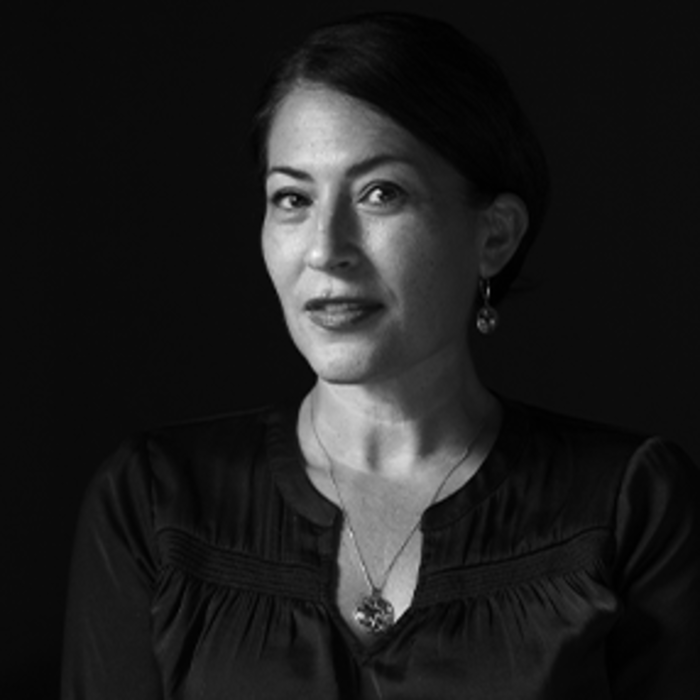
Ada Limón is the author of The Carrying (Milkweed Editions, 2018) and Bright Dead Things (Milkweed Editions, 2015), which was a finalist for the National Book Award.
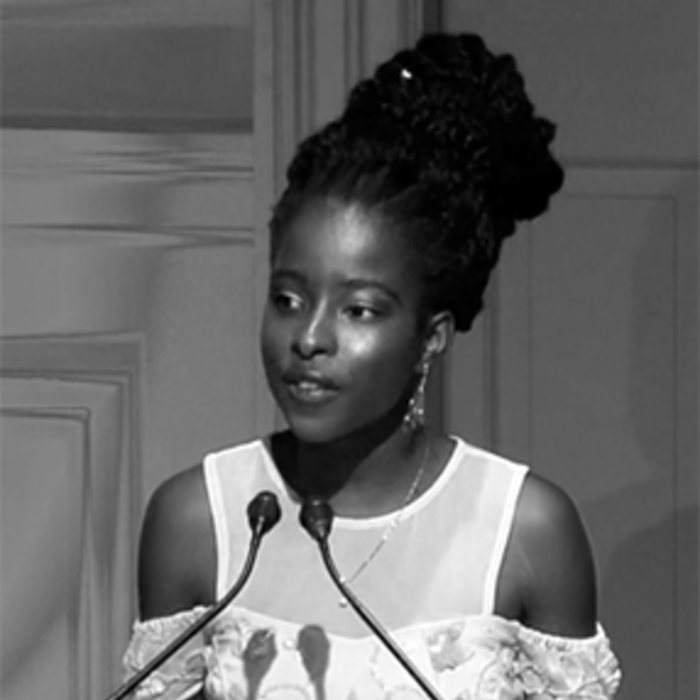
Amanda Gorman
The first-ever National Youth Poet Laureate, Amanda Gorman is the author of The One for Whom Food Is Not Enough (Penmanship Books, 2015).

Campbell McGrath
Campbell McGrath is the author of ten collections of poetry, including XX: Poems for the Twentieth Century , In The Kingdom of the Sea Monkeys , Shannon , and Seven Notebooks . His third book, Spring Comes to Chicago , won the Kingsley Tufts Poetry Award.
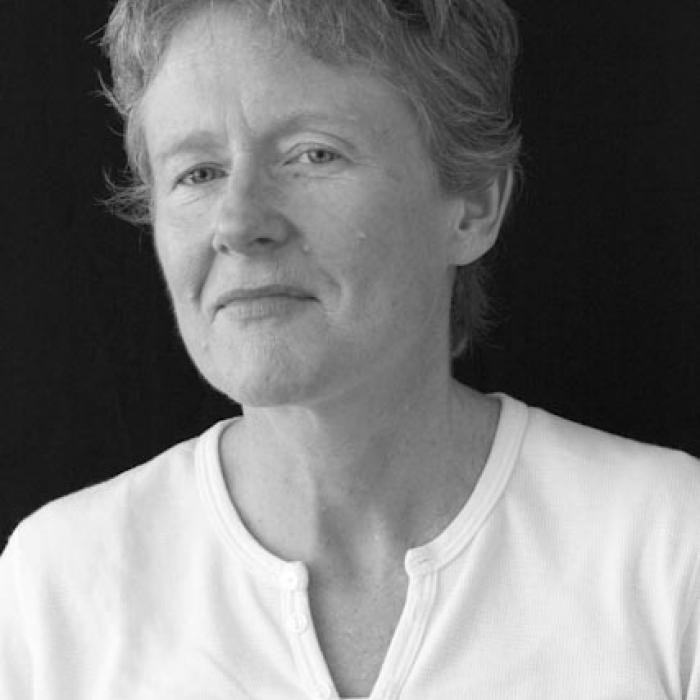
Suzanne Gardinier
Born in New Bedford, Massachusetts, on January 25, 1961, poet and essayist Suzanne Gardinier earned her BA at the University of Massachusetts Amher
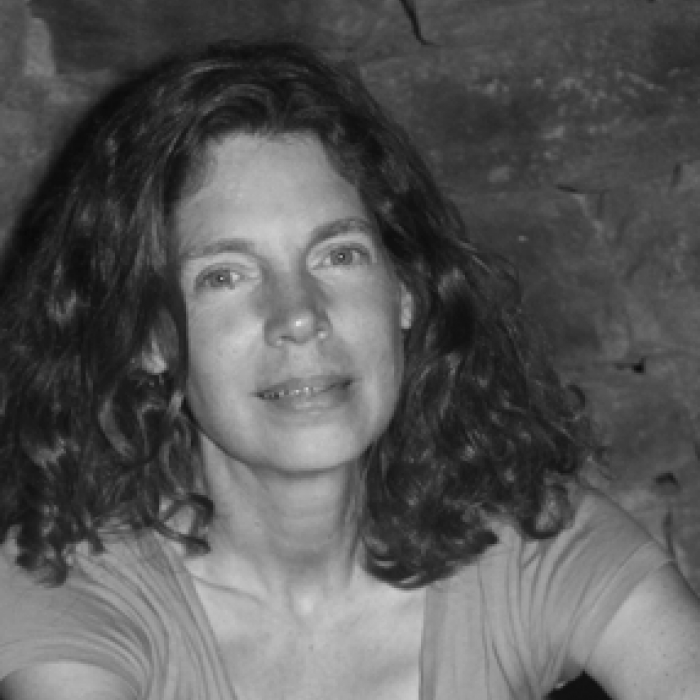
Jody Gladding
Born in 1955 in York, Pennsylvania, poet and translator Jody Gladding received her BA from Franklin & Marshall College in Lancaster, Pennsylva

Rachel Hadas
Born on November 8, 1948, Rachel Hadas is the author of numerous books of poetry, essays, and translations, including Halfway Down the Hall: New & Selected Poems (Wesleyan University Press, 1998), which was a finalist for the 1999 Lenore Marshall Poetry Prize.
Newsletter Sign Up
- Academy of American Poets Newsletter
- Academy of American Poets Educator Newsletter
- Teach This Poem

IMAGES